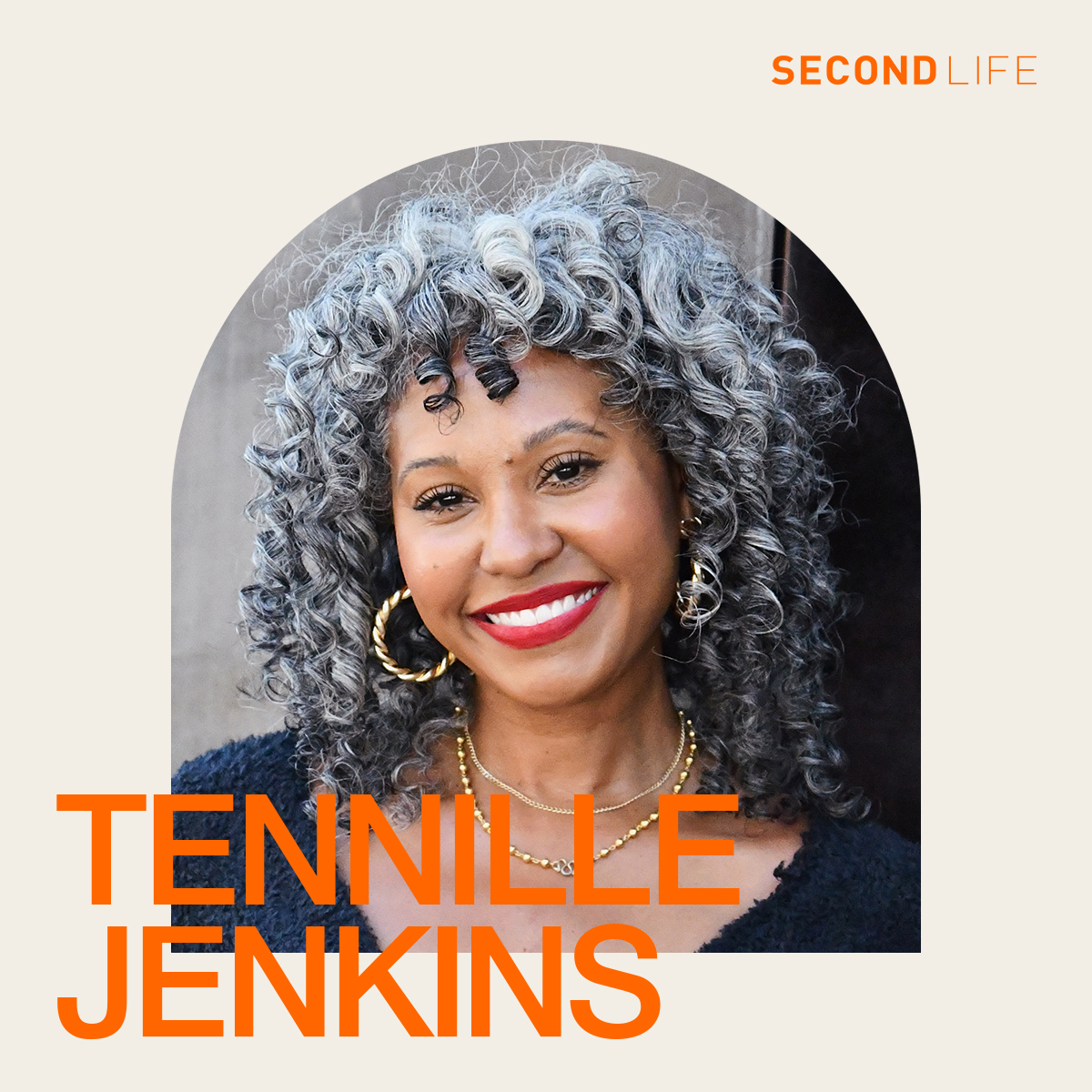Gabrielle Union Is Choosing Her Bliss Above All Else

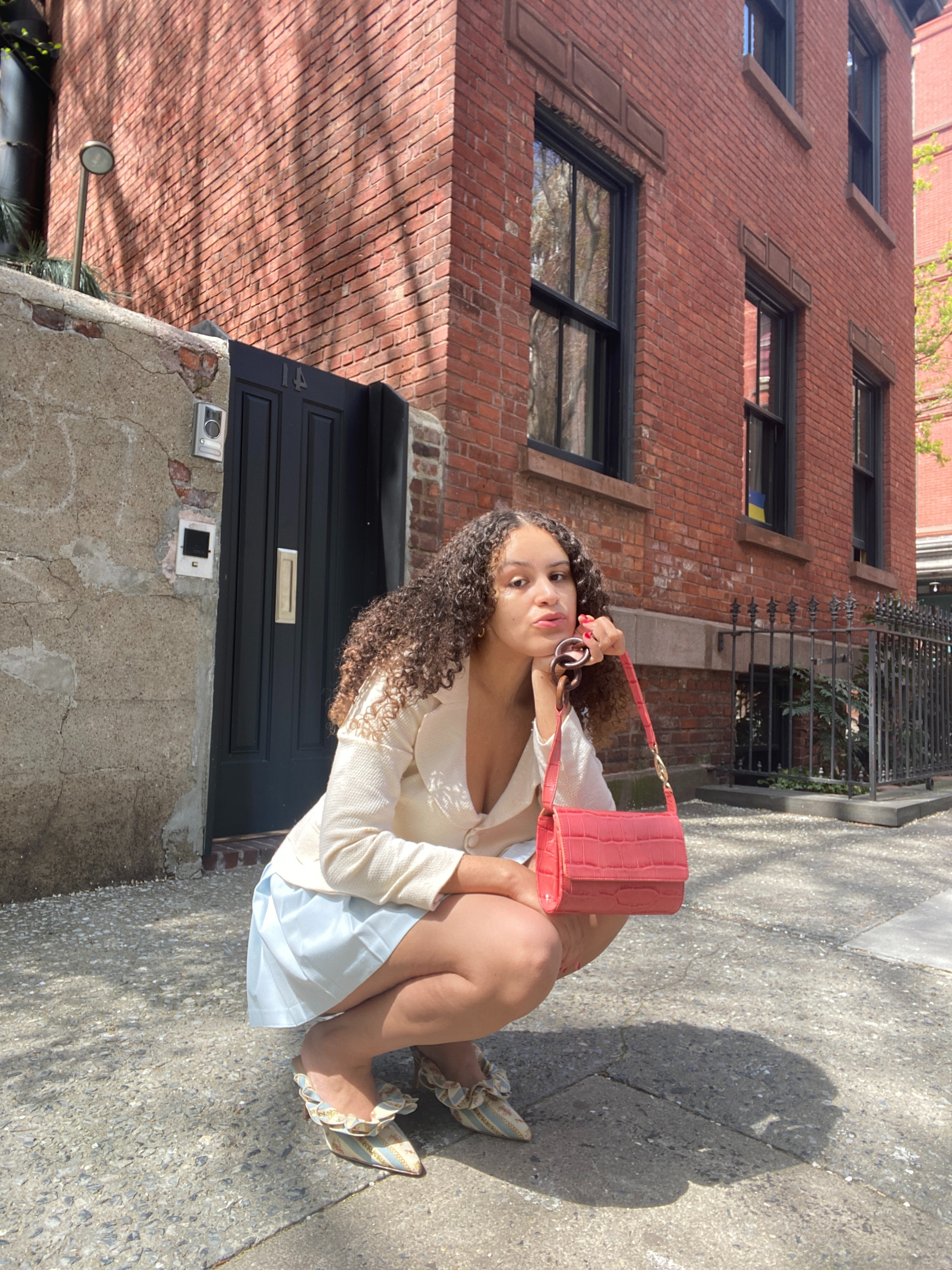
On a particularly gloomy day in June, Gabrielle Union—bundled up in a heather-gray hoodie with her hair gracefully tucked underneath a baseball cap—declares over the sound of children (likely her youngest, Kaavia) gleefully playing in the background, "I’ve been living out loud.” What does she mean by this exactly? Anyone following Union’s 30-plus years in the entertainment industry as an actor, producer, and author knows that this is no hyperbolic statement. She’s often one to speak truth to power. Not to mention, some of her most salient roles on-screen are now regarded as unapologetic Black films. Love & Basketball, Bad Boys II, Deliver Us From Eva… The list continues. But to confine Union’s star power to her acting résumé and entrepreneurial pursuits (she’s the founder of the haircare brand Flawless, as well as the co-founder of the baby care brand Proudly and the children's snack food line Bitsy's) would be to deny what makes her so compelling, and that’s her sense of self.
Union’s comfort in her skin is infectious. Even as we connect via a video call from opposite ends of the country, I can feel her presence radiating through the screen. Sure, the feeling of candor between us can be attributed to Union’s unfettered openness about every aspect of her life. After all, this woman has written not one but two New York Times best-selling memoirs and has continuously used her very large and public platform to address cultural taboos and lobby Congress for systemic change. But during our conversation, it becomes evident that her confidence doesn’t come from years in the spotlight, success, or assimilation. It’s her choice to prioritize her joy above making others comfortable.
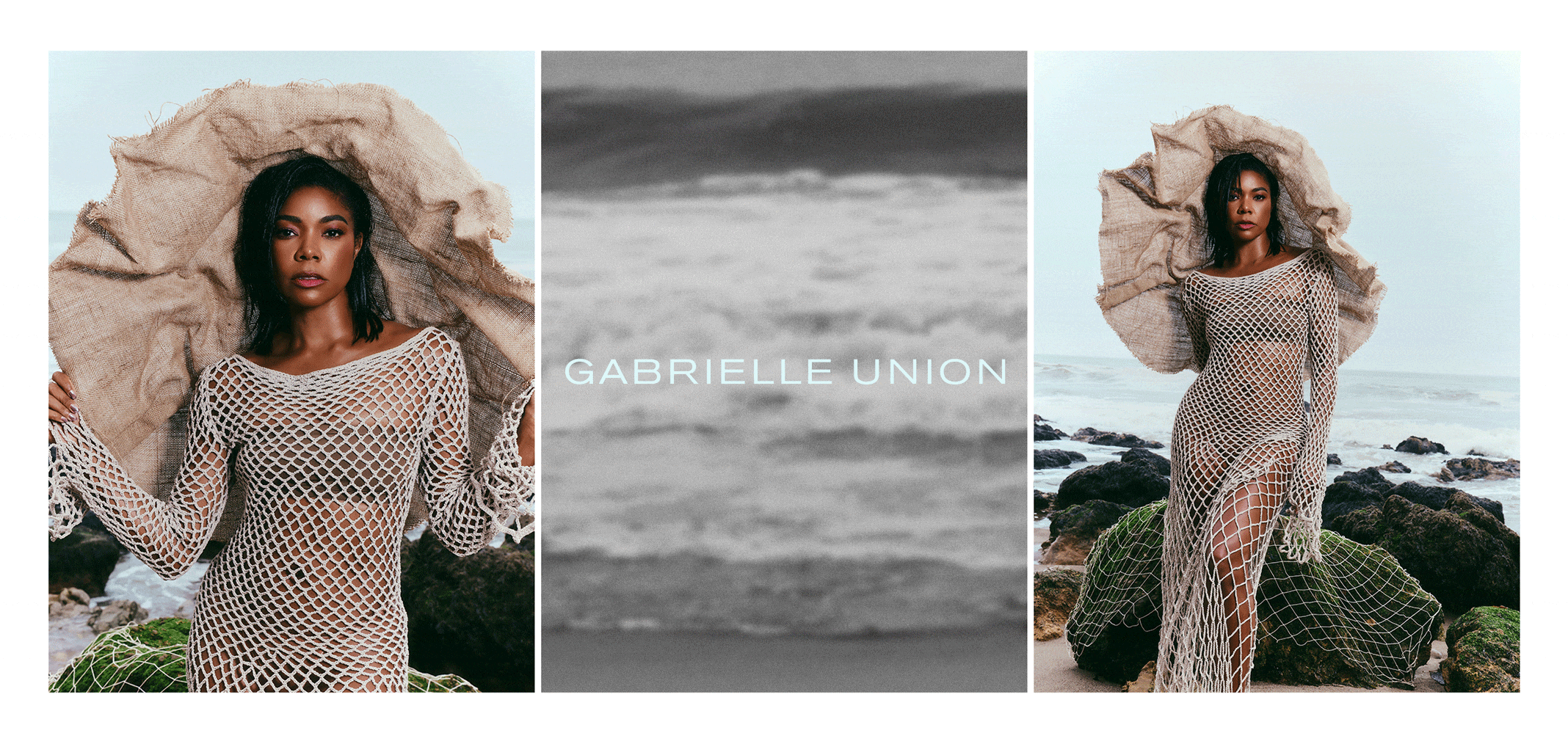
"Somewhere around 40, I was just like, ‘I gotta empty my basket of fucks to give,’” Union says emphatically. "The folks who don’t want people to empty their basket of fucks, the ones who want women to stay under the thumb and to ‘stay in their lane’—whatever the hell that’s supposed to mean—that’s who’s being triggered by me living in my truth.” Like so many highly visible women, Union has been held up as both a beacon of reverence and ridicule. Throughout her career, people have either built her up or torn her down based on their opinions about her career choices, marriage, children, body, and even finances.
The critiques and praises come from a collective script about how one "should” move through the world as a 50-year-old woman, a mother, a wife, a Black person, and a survivor. Union isn’t blithely unaware that the world has cast her into a specific role, but she’s no longer following the script. It takes conviction to write a life for yourself on your own terms, and for Union, that looks like not letting her age, race, or sex define her value and her soul’s purpose in this world.
That’s not to say that navigating the entertainment industry has always been easy for Union. Historically, Hollywood hasn’t been kind to women or given them agency over their careers, bodies, and stories. When Union landed her first acting role in Saved by the Bell in 1993, it was long before any cultural "reckoning.” No conversations were happening around rampant sexual abuse, mental health, and diversity and inclusion. Union had to find her own path in a system she knew wasn’t built for people like her. "Until you can control your destiny, you’re trying to figure out how to work within the system,” she tells me. "That system has never worked as promised, so I stopped looking to it. I had to find joy within instead of looking to be validated by this industry, by any one project, by any one producer, director, or role that would never satiate me—even though I was programmed to believe it should. That thing I was chasing was never actually real. What is real is my peace of mind and my joy.”
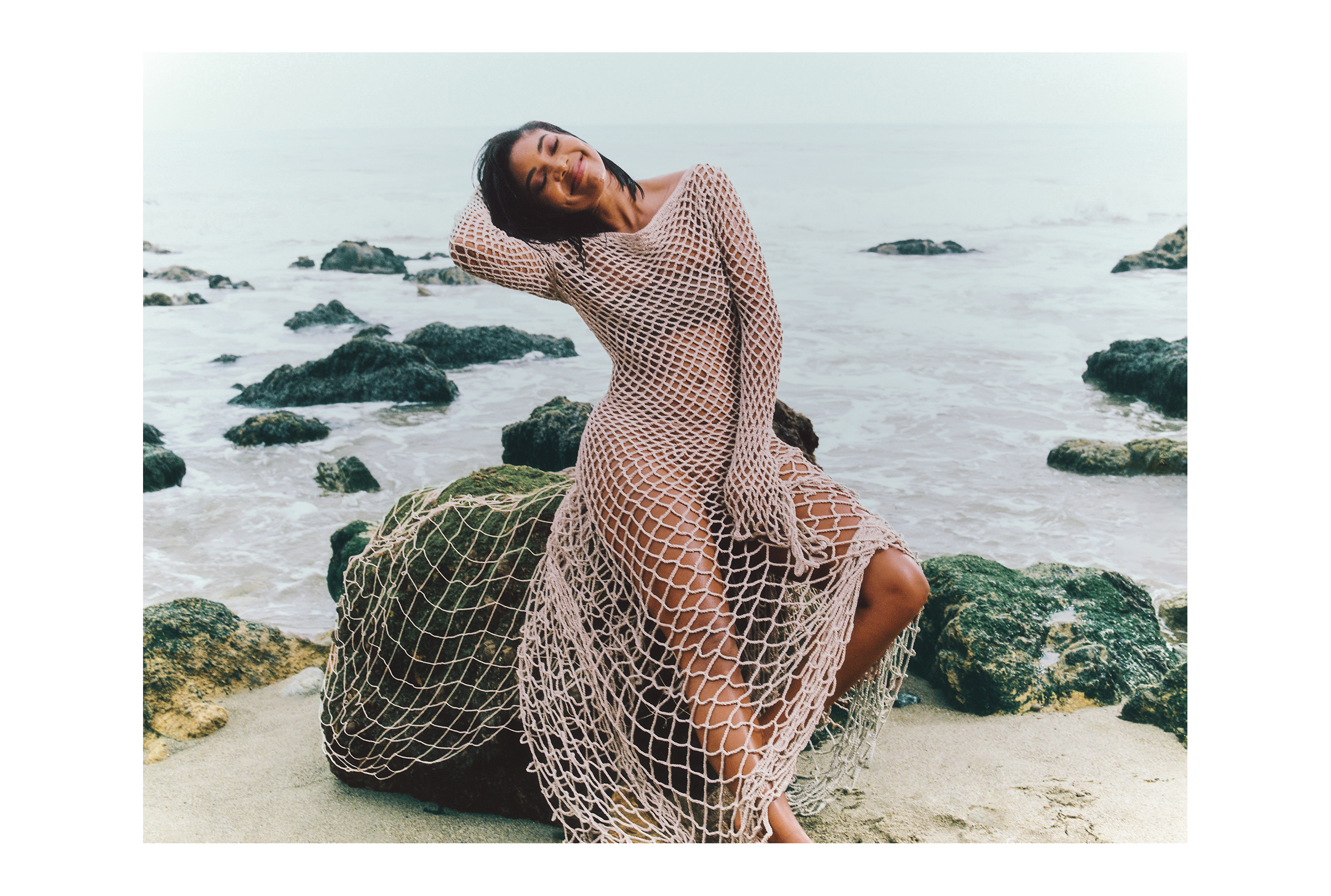
In many ways, Union’s perspective feels reminiscent of late activist Audre Lorde, who said, "The master’s tools will never dismantle the master’s house.” It’s an idea that you’ll never find the fulfillment you’re searching for if you’re using someone else’s measuring tape. Like so many creatives before her, Union initially struggled to free herself from defining her "success” on Hollywood’s terms. "Early on, I firmly believed that if your movies were number one at the box office, your career would change, and you’d have all these opportunities. The world would be your oyster,” she says. "And then every movie I was in was opening number one, yet my life somehow got harder. You can go from being on all the It-girl lists and being labeled as an ingénue to shit fast, and you’re worse off than before. It’s a feeling that many people have in this industry, that we are somehow interchangeable. And no one’s career can flourish slowly in a direction that feeds their creative souls. I saw it firsthand and didn’t need to see it anymore.”
Later in the conversation, Union speaks on how Tina Turner, who passed just weeks before our interview, was never given the respect she fully deserved. Despite her star status and the happiness she found living with her husband in Europe, so much of her life was deduced to a punch line that centered on her trauma. Union professes, "She went where she was celebrated and not merely tolerated. … What if more of us went where we were loved? Why are we still holding on to these beliefs that if success doesn’t come from one direction, then we are worthless, then we are invisible, then our work will not be respected? It’s not true. There are people showing us a different way every day.”
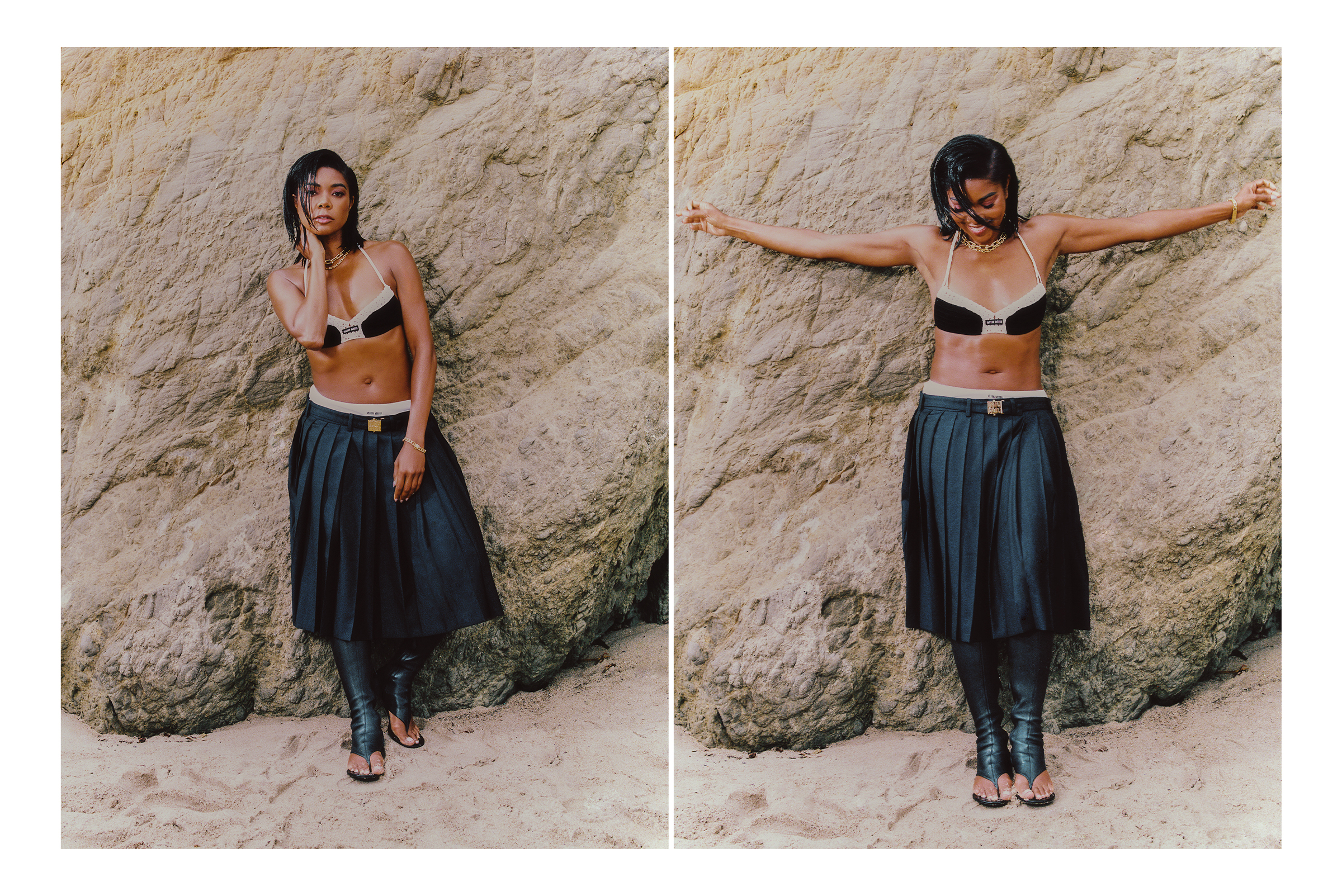
Union has paved her own path by being a part of what she calls "hood classics” and building her own sense of community within the entertainment industry. She admits it took her some time to get there. "I just got to the point where I recognized joy in my Blackness. Making projects that are for and about Black people and other people of color is my joy,” she says. You can see this reflected in her recent work as an executive producer and star of the Netflix rom-com The Perfect Find. The film, based on the best-selling book of the same title by Tia Williams, follows fashion editor Jenna Jones (Union) as she navigates a career comeback and an unexpected new romance with a younger man.
While the romantic comedy explores the obstacles older women have to maneuver around in both their professional and personal lives, I, as a fashion editor, also found it interesting to see those challenges examined within my own industry. It was an element of the project that wasn’t lost on Union either. "Luckily, I am friends with people in the fashion world, so I had a wealth of access to be able to see how treacherous the world of fashion is for Black women, certainly as we begin to age or when we might want to start a family or have any kind of life outside the industry,” she says. "I could see what it looks like and the real stakes and have that inform the project.”
But it wasn’t just that Union wanted to tap into the lived experiences of the Black fashion community. As executive producer, she wanted the project to foster a sense of camaraderie for everyone involved. "I try to make the experience different on my projects to ensure everyone’s talents and time are respected,” Union says. "But a lot of it comes down to respect for actors, period. Respect for creatives, period. It’s about not treating people like they’re interchangeable because there’s something uniquely brilliant about each of us.”
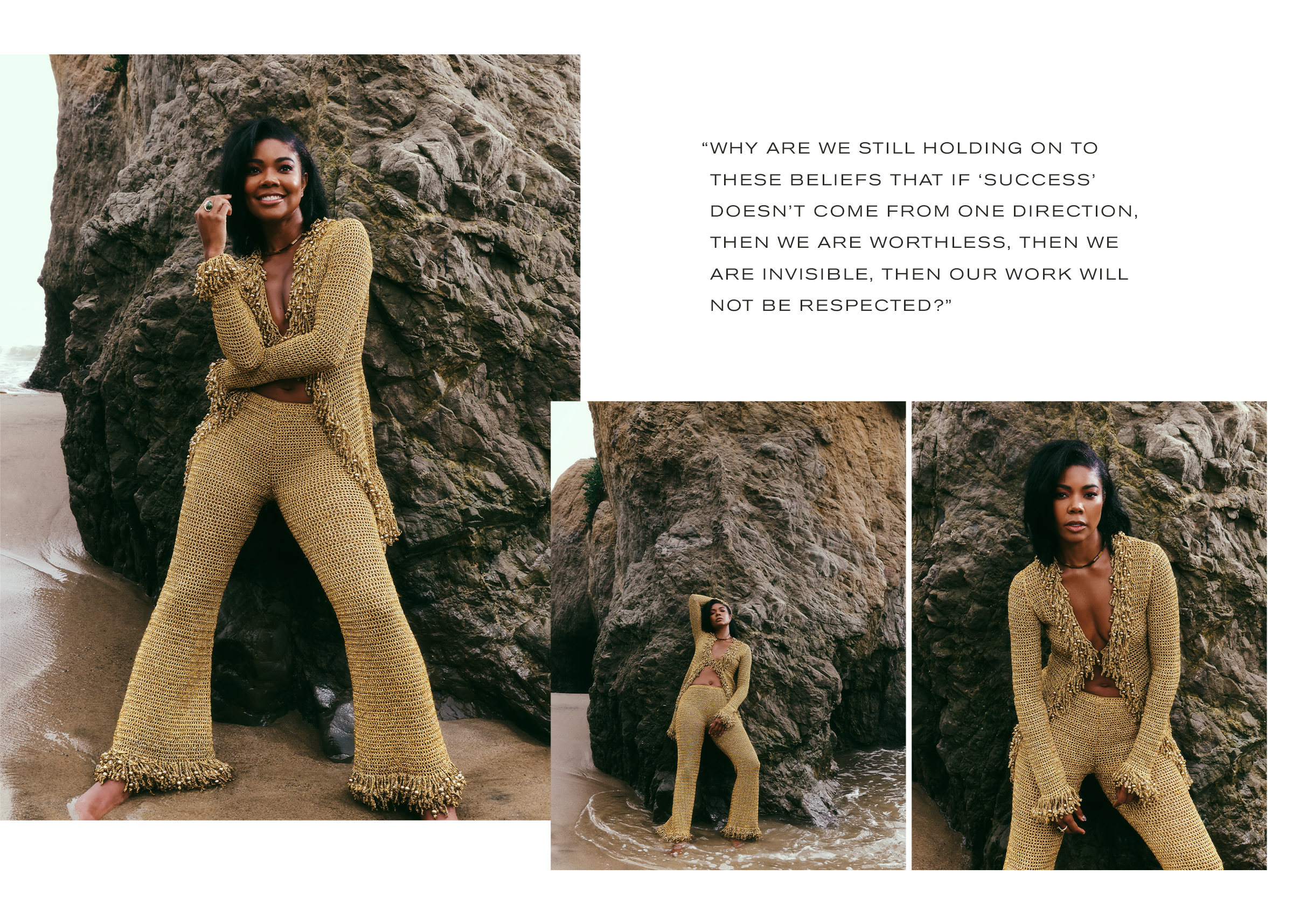
Her perspective feels like it flies in the face of an industry that has thrived off exploitation—even more so now in light of the current WGA and impending SAG-AFTRA strikes. When I probe Union about how she feels about Hollywood’s current standstill, she says, "Hopefully, these strikes help people see that how we have handled talent is not conducive to collective success. If you like those huge profit margins and those huge executive paydays, then we have to respect the process. Until that happens, you’ll see it impacted in the final product.”
Throughout her career, Union has experienced firsthand how the system fails creatives like her. "We saw hundreds of millions of dollars committed for diversity and inclusion at corporations nationwide, but when you circle back and see all the exposés on what actually happened to that money, the proof is in the pudding,” she says. "There’s no pudding; we got Jell-O. You can see through it.” She pauses, then continues, "I saw many people post their little black squares and then return to their homogeneous friend group and work group and make zero changes. You’re an ally, love? Would love to see that in practice.”
For Union, doing the work to implement actual systemic changes isn’t just lip service. She’s not choosing to partake in specific projects to fulfill some cultural pressure to be more inclusive or even to assuage her ego. It’s about more than that. She has had her fair share of comedic roles recently, from playing Jenna in The Perfect Find to voicing Talia in the hit Disney animated series The Proud Family: Louder and Prouder. But there are also those titles that have explored weighty topics, like the disproportionate media coverage of missing Black children in the Apple TV+ series Truth Be Told and the real-life story of the estranged relationship between a mother and her gay son in the critically acclaimed film The Inspection. What’s more, Union is fresh off the tails of producing her own documentary in partnership with BET, My Journey to 50, about her experience traveling throughout Africa.
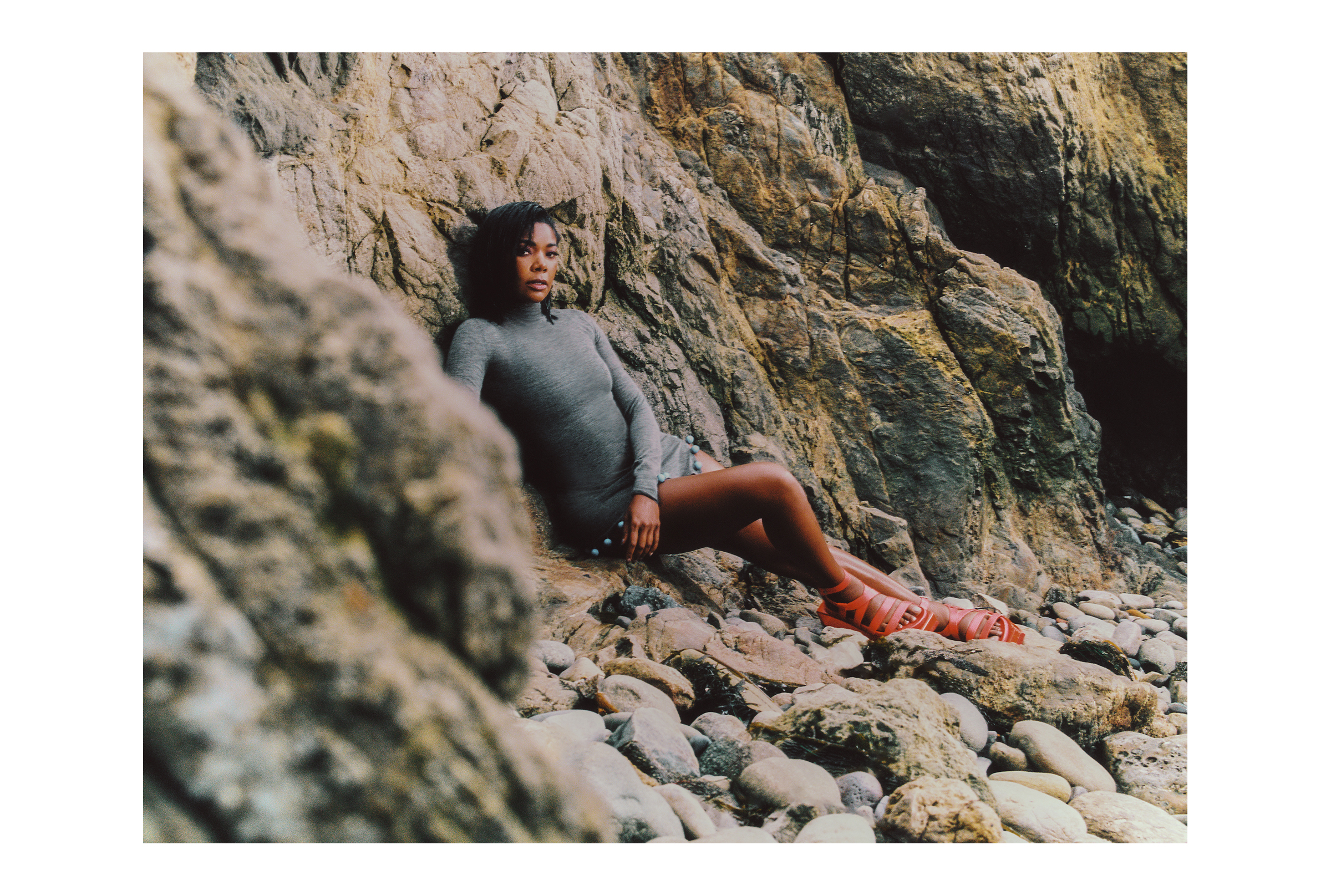
"My work has to be different. Otherwise, what is the point? Yeah, I’m in the room, but the next thing you must ask yourself is, Are you the spook up by the door, or are you actively trying to change our reality?” she ponders. The latter question is the driving force for Union. She’s not interested in lining her pockets; she wants everyone around her to eat. This becomes evident when I hear the glee in her voice as she admits to emailing the likes of Kerry Washington, Issa Rae, and Viola Davis on the fly when she needs advice or is giving it. Union thrives on building and being part of a collective. "There are people I have been in community with who have not been in community with me. But when it’s a symbiotic relationship, people are okay with making themselves uncomfortable. It means sharing resources, information, and finances without feeling like I’m losing anything, but rather gaining the world,” she says.
"I’m all about collaboration because that brings joy,” Union says. "There is a level of necessity in our community building. Could we all do these things individually? Sure. But it’s so much more fun and more rewarding having others there with you. I found joy in every part of our community, and I will never apologize for it.” Union not only finds fulfillment in working with others, but she’s also learned to separate her self-worth from how others view her work or how she chooses to lead her life. "I’ve reached the point where I know enough people like me. I don’t need 100%,” she says. "You’ll never get there. If that is your goal, you will lose yourself. You will barter with your soul on the daily trying to get everyone to like you, and the people that will like you as you do are the people who are invested in the corrosion of your soul.” Union has no intention of making any Faustian bargain to be liked by everyone.
It’s refreshing, especially considering that so many women of color are pressured to sugarcoat their experiences, hide their personalities, and even change their life paths so as to not upset others around them. But Union understands that there’s no "right” way to be a Black woman in the world. "There are billions of people in the world and billions of ways of living,” Union declares. It’s something that’s become her North Star anytime she might be swept up in a commentary on her films or personal life. In those moments, Union reminds herself, "We have to offer that space and grace for everyone we have opinions about and the people that share them too.” With time, patience has become a source of happiness for Union. "Grace is such a gift—it’s the best gift I can give to myself and others,” she avows.
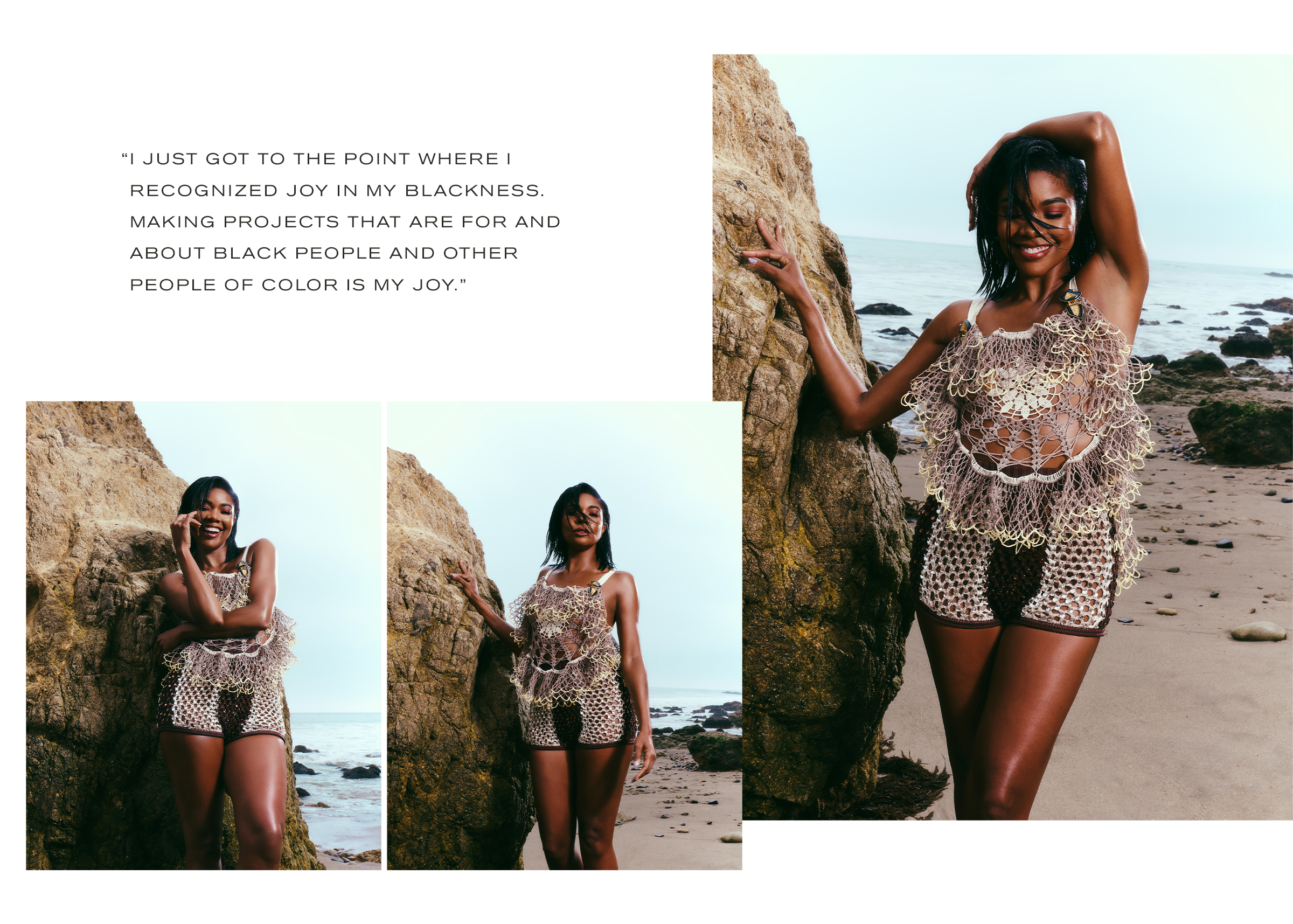
Of course, that doesn’t mean that her patience isn’t tested at times. More recently, the internet decided to criticize her for splitting the bills 50-50 with her husband. But even then, she can take a step back and acknowledge that not everyone comes from the same economic background. Many Black professionals are paying what’s dubbed the "Black tax,” meaning they’re supporting multiple households, and most people don’t hold the same values around money. "I think the takeaway is that some people think of me as stupid for not forcing a very wealthy man to pay for my life. If that works in your house, I love that for you. But that’s not how it works over here. That’s not what brings me joy,” she says. "Paying for half of this house—which is our dream home—paying for half of our vacations, paying for half of our miracle child, I take great pride in that. You should have so much pride in what works for your household, and you can also allow me to have pride, joy, and peace in how I choose to live my life. None of it has anything to do with you.”
Drawing that boundary and giving herself grace has been paramount in Union’s journey in cultivating and fortifying herself. It’s not just about giving herself and others space to carve out a path that works for them. She believes in honoring every part of the journey, even the unhappy parts. Union has had moments when she’s not in a great place (she’s human, after all), but with time, she’s learned to set boundaries. It may seem contradictory, considering that Union has always been open about her bad experiences. She’s spoken at length about struggling with the trauma of a violent assault and grieving many miscarriages on her journey to become a mother. Yet she admits, "My barometer for sharing something publicly is if I have healed and have been in therapy about it. If I can speak on it from a healing place and offer a path of light for anyone else, I will talk about it. But I don’t talk about it if I have not healed from it and [if] I’m still circling the drain.”
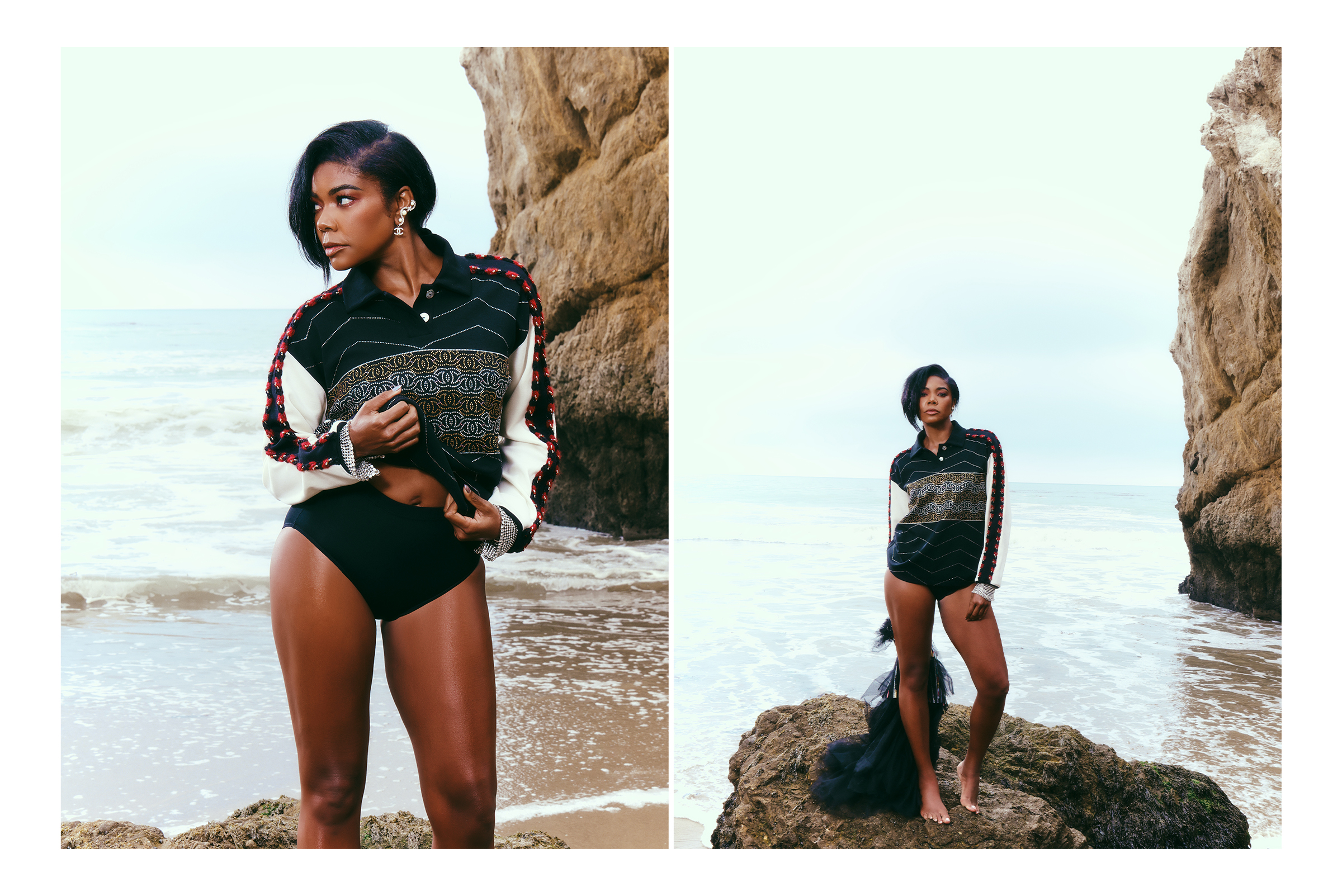
It’s not just choosing what she talks about; it’s also admitting when she needs to be given grace too. "It used to scare the shit out of me … the thought of disappointing or inconveniencing people. But I’ve learned I can be okay with not being okay. There are so many days that I can’t be a strength to myself, much less to anyone else, and that’s okay,” she says. "We are so conditioned to be perfect at all times, to be the strong Black woman, but I’m going to tell you right now—the world keeps spinning, nobody misses a beat, and people get over it. So creating space for yourself when you need it is okay.” Admitting even when you don’t have joy is a part of finding your way back to it and helping others find it too. At least, that’s how Union now sees it.
"The more I started claiming space, time, and grace for myself, other people claimed it for themselves as well. It builds a sense of community,” she says. Choosing to honor your feelings may seem minor, but for Union, that’s a part of forging your own way. You have to actively choose to listen to yourself and move toward what fulfills you, even if it challenges the societal structures that tell us what success looks like, how the nuclear family "should” be, and who’s worthy of love. Union knows this because she has been out here living it. She’s not trying to "break the bank with Hollywood” anymore. She’s just prioritizing the small things—reading books on subjects she’s woefully undereducated on; chopping it up with Black chefs; discovering new fashion designers; connecting with authors, actors, and artists; and, most importantly, spending time with her family. Gabrielle Union���s path may not be for everyone, but you better believe it now brings her bliss.
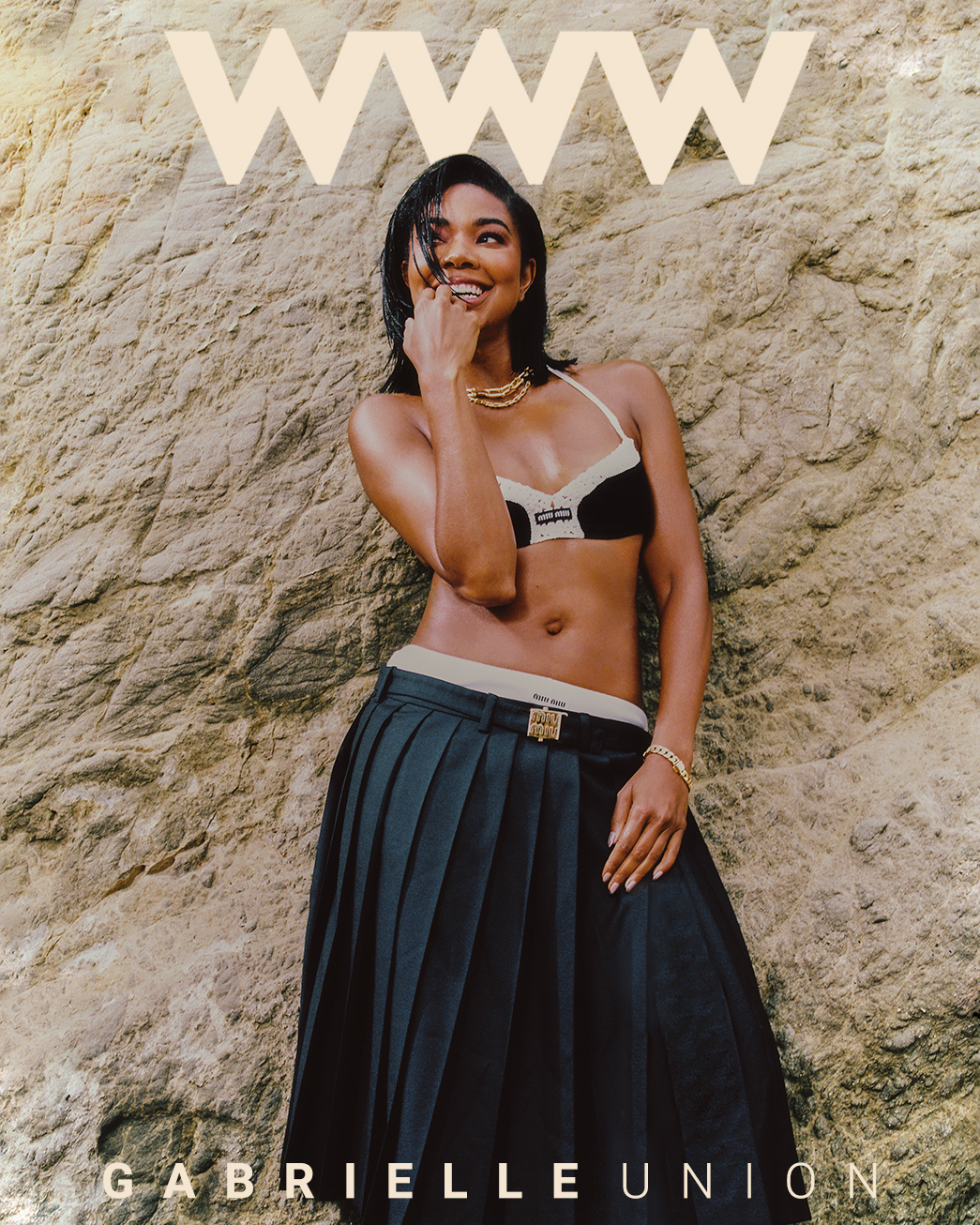
Photographer: Chrisean Rose
Stylist: Thomas Christos Kikis
Hairstylist: Larry Sims
Makeup Artist: Joanna Simkin
Manicurist: Thuy Nguyen
Creative Director: Alexa Wiley
Entertainment Director: Jessica Baker
Next up, Trust Us—You Want Halle Bailey to Be Part of Your World

Jasmine Fox-Suliaman is a freelance writer and editor living in New York City. What began as a pastime (blogging on Tumblr) transformed into a lifelong passion for unveiling the connection between fashion and culture on the internet and in real life. Over the last decade, she's melded her extensive edit and social background to various on-staff positions at Who What Wear, MyDomaine, and Byrdie. More recently, she’s become a freelance contributor to other publications including Vogue, Editorialist, and The Cut. Off the clock, you can find her clutching her cell phone as she's constantly scrolling through TikTok and The RealReal, in search of the next cool thing.
-
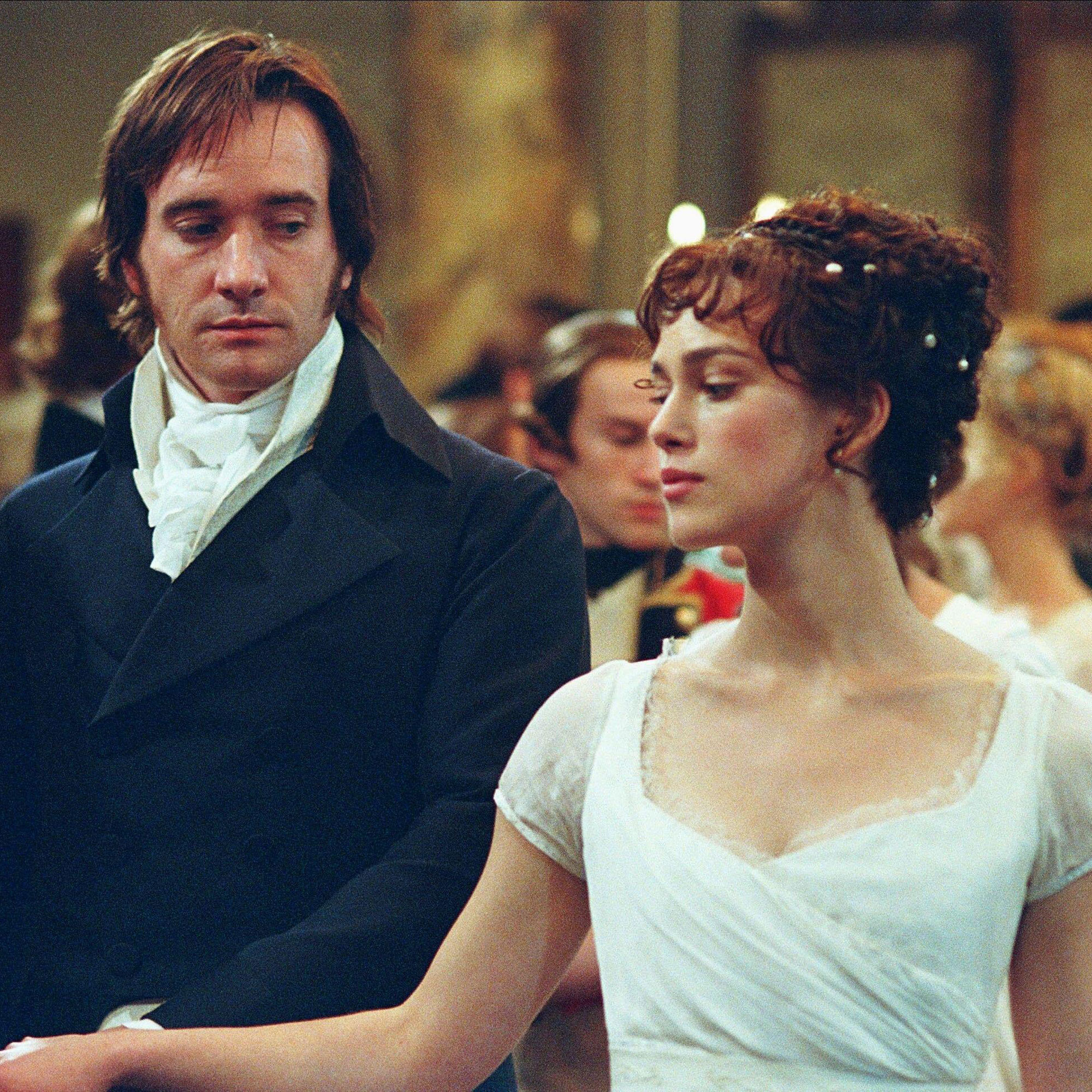 Netflix Is Reviving Pride & Prejudice—Find Out Who Will Play Elizabeth and Mr. Darcy
Netflix Is Reviving Pride & Prejudice—Find Out Who Will Play Elizabeth and Mr. DarcyThis casting news is so exciting.
By Erin Fitzpatrick
-
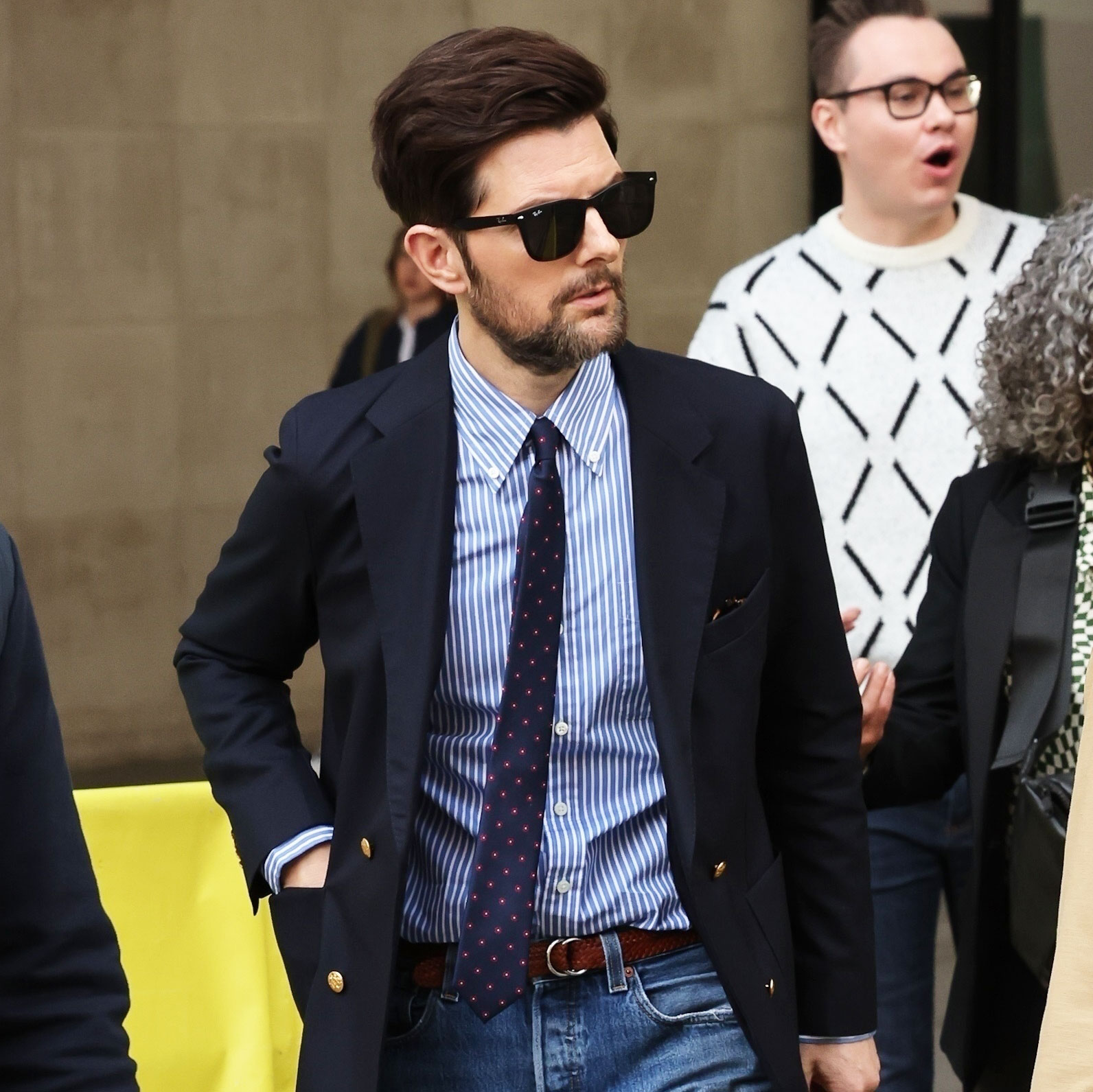 SOS: Adam Scott and Tramell Tillman Have No Right to Look *This* Good in Jeans
SOS: Adam Scott and Tramell Tillman Have No Right to Look *This* Good in JeansTheir new outfits are criminally cool.
By Erin Fitzpatrick
-
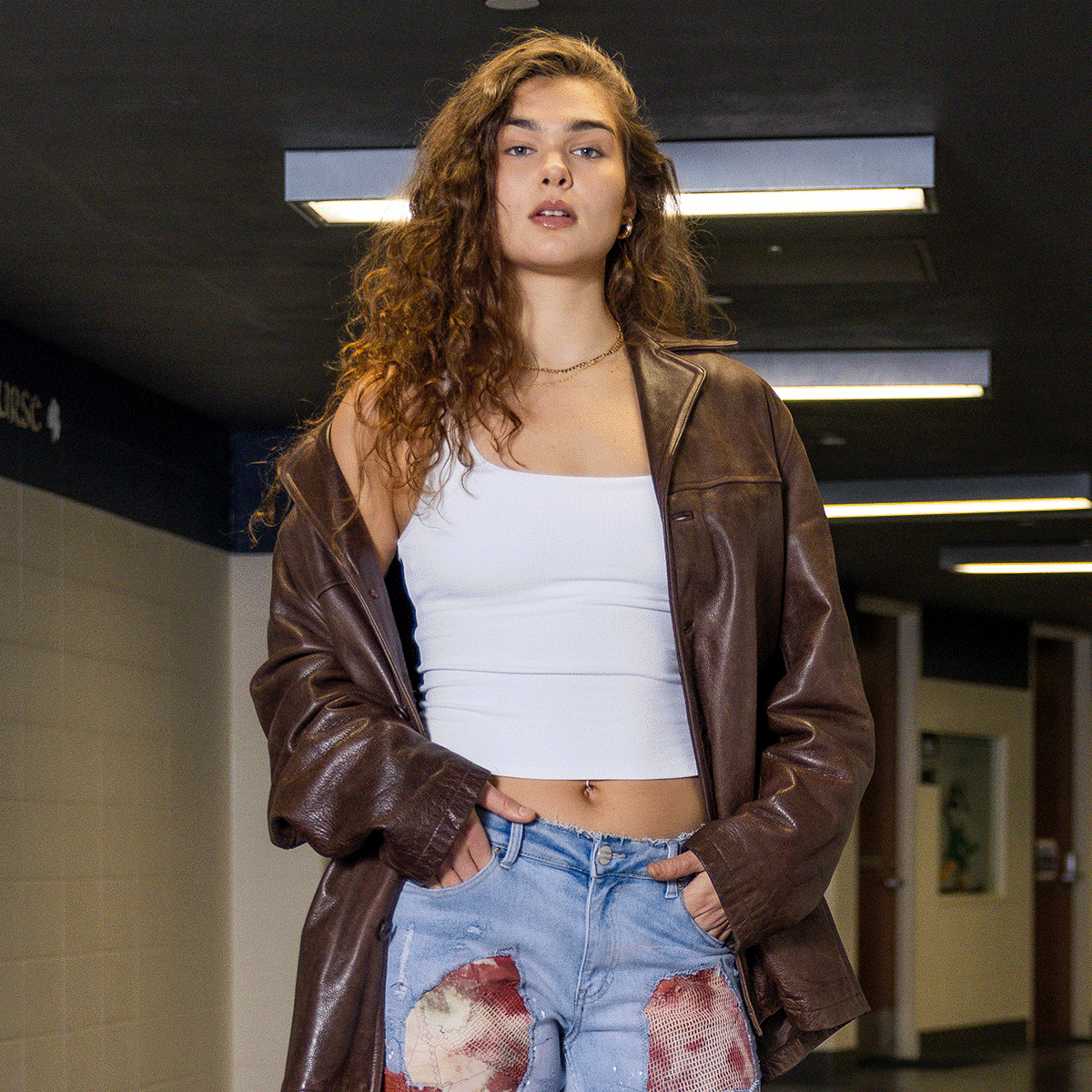 What Happens When College Basketball Embraces the Tunnel 'Fit?
What Happens When College Basketball Embraces the Tunnel 'Fit?I asked Notre Dame's Maddy Westbeld and Coach Niele Ivey.
By Eliza Huber
-
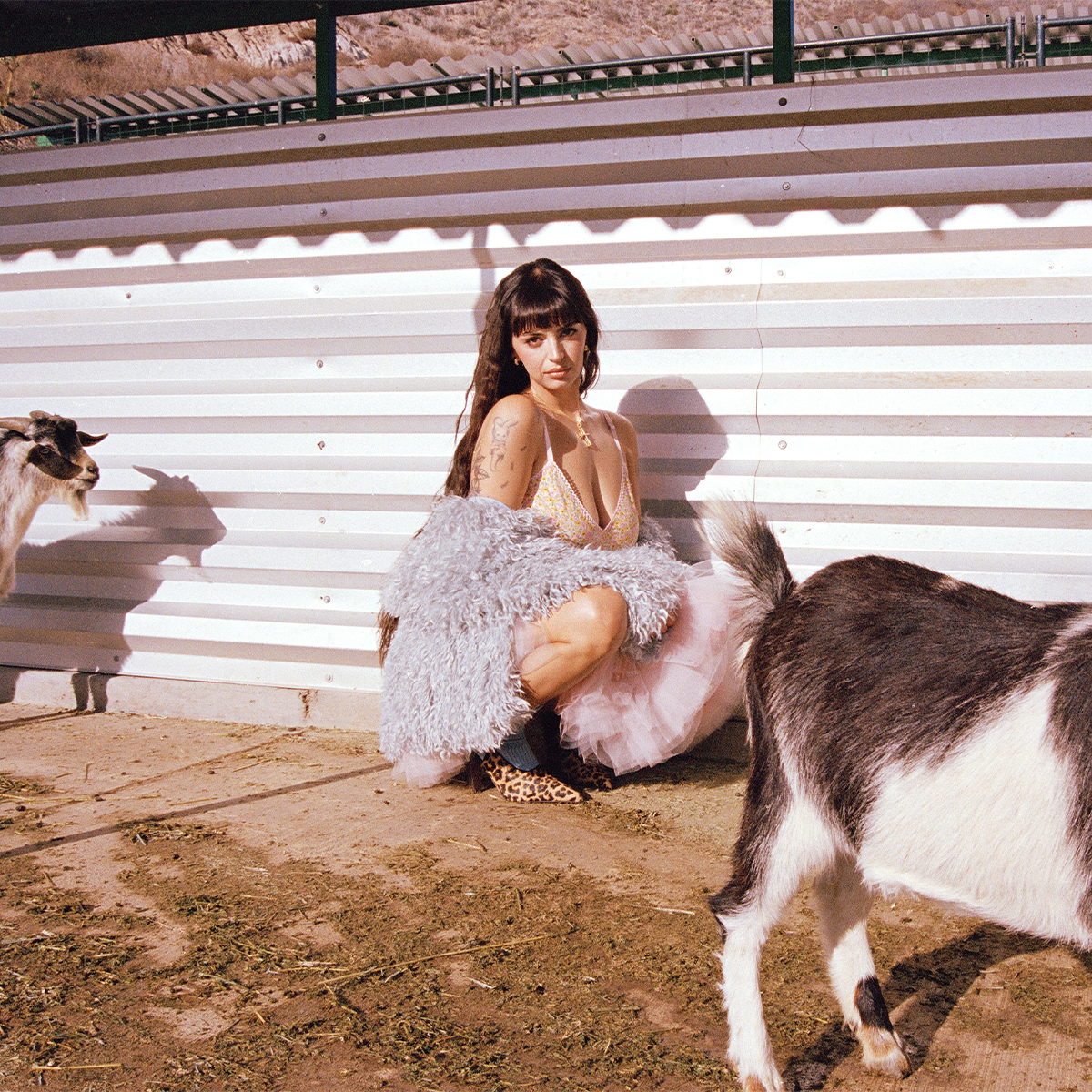 Rebecca Black Is Back and Ready to Show You All of Herself This Time
Rebecca Black Is Back and Ready to Show You All of Herself This TimeThe "Friday" singer has a brand-new pop EP, Salvation.
By Jessica Baker
-
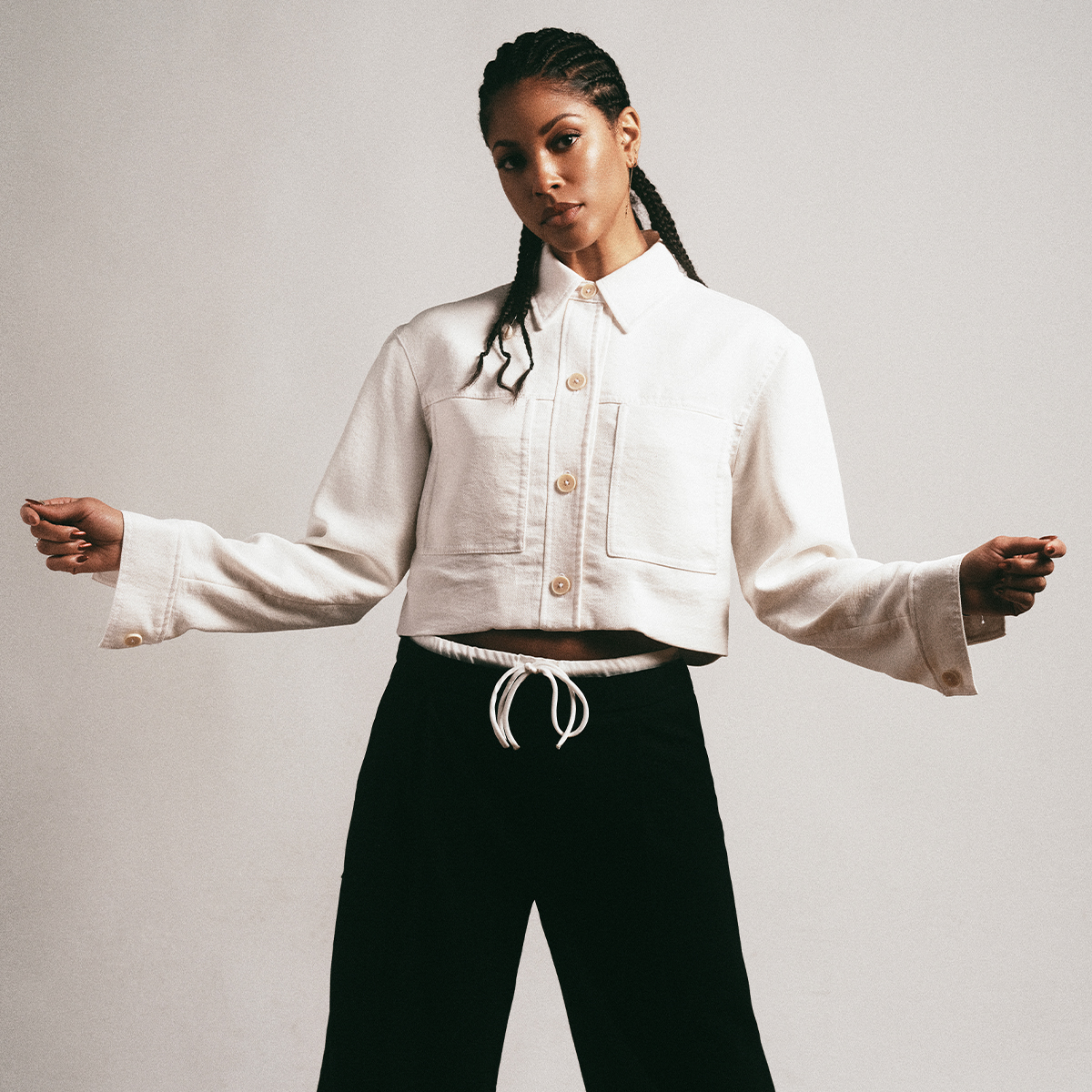 Lex Scott Davis on Joining the Suits Universe and Her Character's Iconic Wardrobe
Lex Scott Davis on Joining the Suits Universe and Her Character's Iconic WardrobeA lesson in power dressing.
By Jessica Baker
-
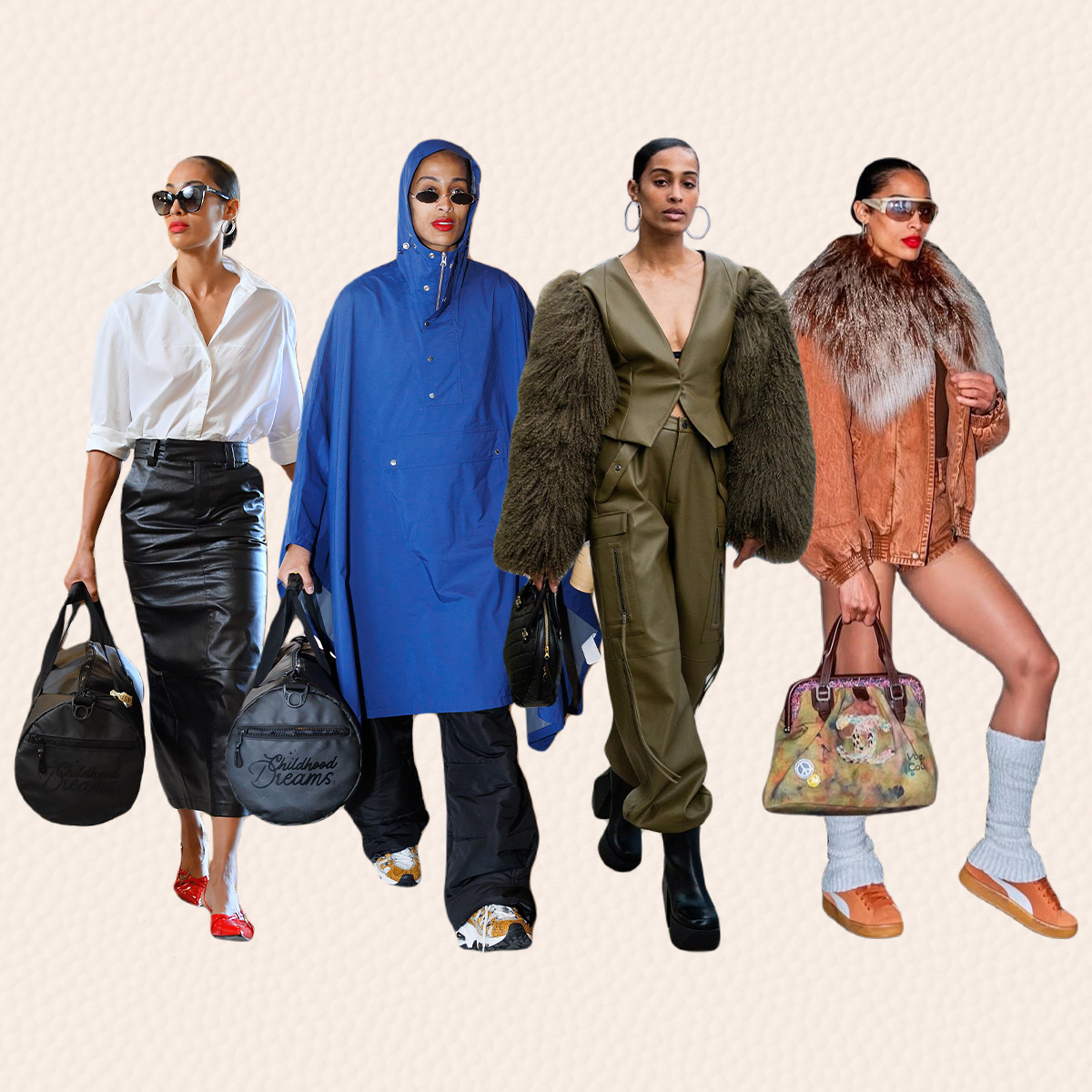 The Power of Styling in Sports
The Power of Styling in SportsIn conversation with Skylar Diggins-Smith and her stylist, Manny Jay.
By Eliza Huber
-
 The First Trailer Just Dropped for Lindsay Lohan's Freaky Friday Sequel—Watch It Here
The First Trailer Just Dropped for Lindsay Lohan's Freaky Friday Sequel—Watch It HereThe original premiered in 2003.
By Erin Fitzpatrick
-
 Alix Earle Takes Fashion Risks for Miu Miu (Yes, That Includes Socks With Heels)
Alix Earle Takes Fashion Risks for Miu Miu (Yes, That Includes Socks With Heels)Anything for Mrs. Prada.
By Ana Escalante

